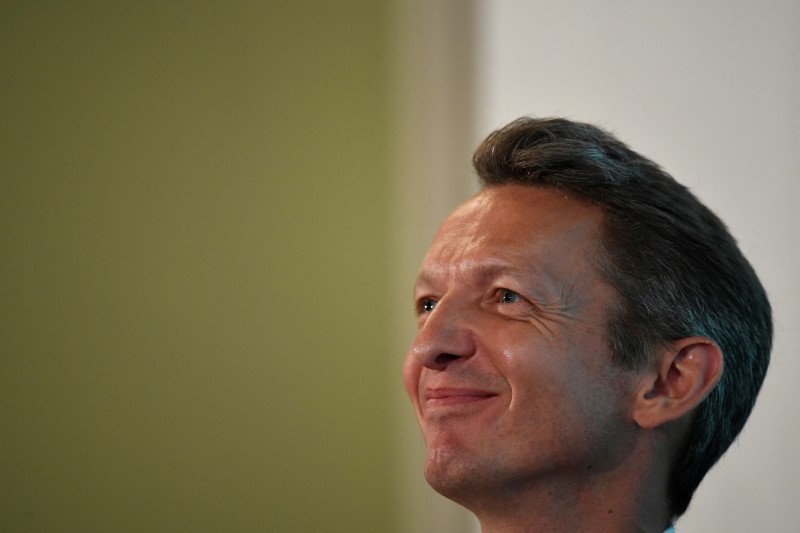 © Reuters. The Chief Economist of the Bank of England, Andy Haldane, listens from the audience at an event at the Bank of England in the City of London
© Reuters. The Chief Economist of the Bank of England, Andy Haldane, listens from the audience at an event at the Bank of England in the City of LondonBy David Milliken
LONDON (Reuters) – Bank of England Chief Economist Andy Haldane said on Thursday his unexpected vote to raise interest rates this month should not be considered “surprising or radical” after a decade of ultra-loose monetary policy.
Earlier this month, investors were taken aback when Haldane joined a minority of officials on the bank’s Monetary Policy Committee (MPC) voting for an immediate rise in rates, boosting the chances of an increase in August.
Haldane said he saw growing pay pressures and added that he would have voted to raise rates from 0.5 percent in May, had data on the economy held firm.
“Voting for a 25 basis-point rate rise, a full decade after monetary policy was first placed on an emergency setting, is hardly either surprising or radical,” he said in a speech to the Academy of Social Sciences in London.
Later he told reporters his vote did not mean he now believed rates needed to rise faster than the BoE thought in May.
The central bank’s May economic forecasts were based on the assumption that rates would rise to 1 percent by the end of next year from 0.5 percent now, and then increase once more by mid 2021.
Since May, Haldane said, data on the consumer had “virtually without exception” bounced back as he had expected.
Still, a business survey from the BoE earlier on Thursday showed sales growth at consumer services firms hit a five-year low over the last few months, while the European Commission said British consumer confidence was at a six-month low in June.
Haldane said in his speech there would always be some data that disappoints. “But waiting for something to turn up is not a prudent strategy in life. And waiting for everything to turn up is certainly not a prudent strategy for monetary policy,” he said.
On the outlook for wages, Haldane said the lifting of a pay cap on National Health Service workers could have a wider effect on the labor market. “This will add to the gradual, but now clear, upwards impetus to wage and cost pressures in the UK economy, at a time when headline inflation is already somewhat above the MPC’s 2 percent target,” he said.
PRODUCTIVITY PLAN
Most of Haldane’s speech focused on fixing Britain’s poor record of productivity growth over the last 10 years. He noted an unusually wide gap between Britain’s most productive firms and a long tail of its least productive companies, which was bigger than in similar economies such as Germany and France.
Limited penetration of information technology, poor management and board members with little experience of how other companies operated were part of the reason behind this.
Earlier this month the opposition Labour Party said it could ask the BoE to target productivity growth if it wins power.
Haldane, however, said: “When it comes to those structural features of the economy, central banks do not have the tools to affect lasting change.”
“We do not build schools, colleges, houses, roads, railways or banks. Nor do we finance them. Those tools, rightly, are in the hands either of governments or private companies,” he said, adding that central banks could help to diagnose productivity problems.
Source: Investing.com



























